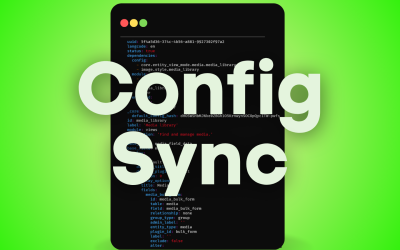
Whether you are sending RFPs (Request for Proposal), or finding them in your inbox, you should understand their limitations. Long considered something between a business best practice and a necessary evil, RFPs have evolved into the preferred method for making competitive corporate purchases, as well as a way to establish new vendor relationships. Don’t get me wrong, RFPs are beneficial for commodities where price is the driving factor. However, the blind RFP, which arrives unsolicited and without any way to connect with the stakeholders, completely misses the point of what is actually needed. In fact, most of my colleagues ignore any blind RFP that arrives in their mailboxes, and consider them to be a monumental waste of time.
I’ve seen emails from companies who solicited RFPs to over 50 agencies yet never received a response. Here’s why’_
RFP submissions focus more on the cost than the professional relationship
Accomplishing the goal of establishing a long lasting relationship with your clients through an exchange of documents is nearly impossible. You need to be able to have actual conversations to really get to know each other. It is the only way to determine if you and your prospective partner are the perfect fit for each other. This is how you create the ideal environment for any web project.
The company seeking a partner must ask the right questions and provide the right information
You are seeking to partner with a digital web agency such as CommonPlaces because you need the guidance that such an agency specializes in. Without an actual conversation you cannot guarantee that all the right information is exchanged. You are experts in your field, not in ours, and vice-versa. How could you possibly know what to ask us?
Responders to RFPs will inevitably low-ball the price
The lowest price, which many RFPs specifically state is their intended objective, may be the most expensive choice you’ll make in your business career. We have phone calls every day from companies who have seen their website collapse under the weight of the ineptitude of the people they hired to deliver the cheapest solution.
RFPs are time consuming
Most RFPs are filled with questions which demand considerable detail. This takes time to compile, and occupies resources with no obvious return benefit. Often, there is no way to tell who else has been sent this RFP, or how many it was sent to. Who am I competing with? Why should I invest my staff’s time into something which we may have no chance of winning? More importantly, how do I know that you’ll even take the time to read my response?
Some RFPs are fishing expeditions
At their worst, RFPs are used by companies with no intention of actually awarding a contract, but rather as a means to gather information, or satisfy a legal requirement.
Lesson learned
When the BP Oil spill in the Gulf occurred, the government sent out an RFP. We were approached by a partner to help provide a solution, and we spent a week allocating engineering resources on the project. It was challenging, time consuming, and expensive – but we believed that we had a great plan, and a great chance to land this contract. In fact, the Systems Integrator told us that we had the inside track.
We made the deadline before the RFP was due, and waited. Two weeks later, the website was launched. Clearly, somebody else had won the contract before we even sent our RFP back. The powers in Washington had already made a decision, but wanted to say that they had a folder of RFPs to choose from. Is it any wonder why we will never want to touch another Federal RFP again?
What you really want
An RFP is a one-sided document. It’s part questionnaire/ part contest. This is not the way to conduct business. Wouldn’t it be better to speak with the best agencies, sharing what your goals are, and what makes your business unique? You need to have a dialogue with the people who are going to build the most vital part of your online presence. You need to discuss budget, strategy, and options which you almost certainly haven’t considered. These agencies will provide ideas and approaches based on years of experience, not what you think you need. Suddenly, the proposal that you’ve been seeking has genuine merit. The various agencies understand you, and you have a greater grasp of what each can bring to the project.
Not all RFPs are equal
Our policy is, if we can meet the company who initiated the RFP, we may do it. We can ask questions and propose ideas that will make the project a success. We need to evaluate the potential relationship to determine if we will work well together. Lastly, all sides must be assured that problems will be solved and objectives met. In fact, we just won a couple RFPs this month where we were able to do precisely that.
At best, RFPs are intended to objectively facilitate proposals and manage cost expectations. While these are laudable goals, their very nature inhibits productive partnerships. They also frequently lead to decisions based on price rather than actual needs. Digital agencies offer intangibles. They provide creativity, strategy, and imaginative solutions. And, isn’t that what you are really looking for?


